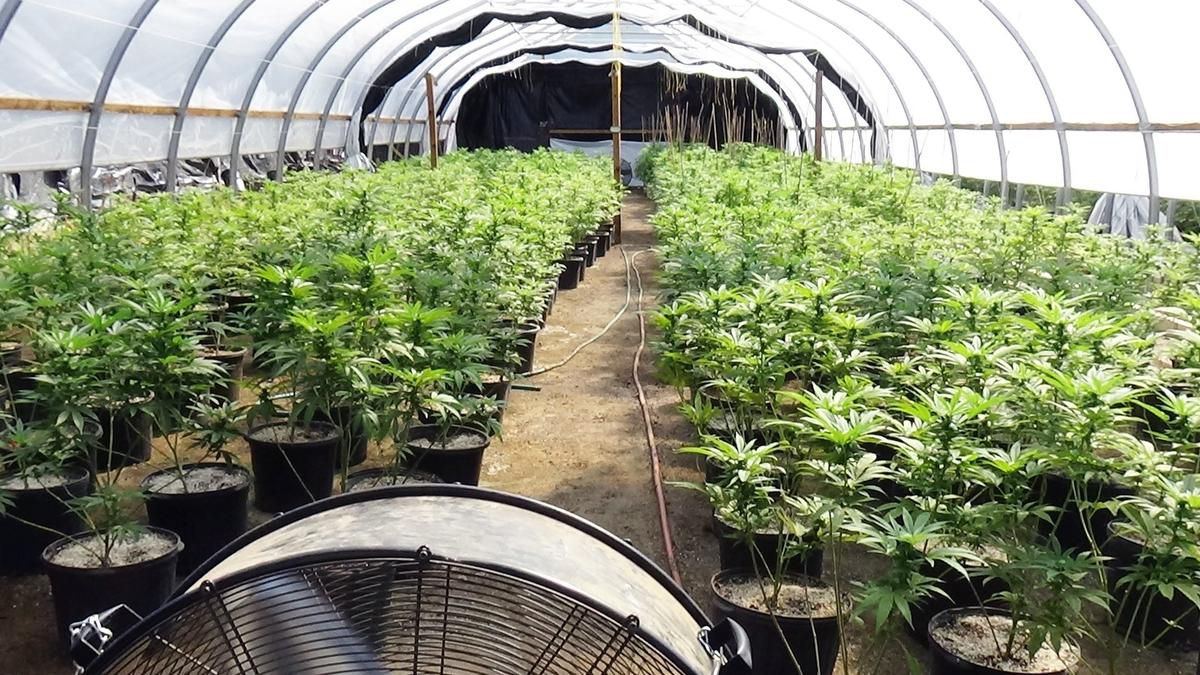Image via
Farmers in southern Oregon are growing so much illegal weed that local officials are begging the state government for assistance.
Last week, the Jackson County Board of Commissioners declared a state of emergency due to the “imminent threat to the public health and safety of our citizens from the illegal production of cannabis in our county,” according to the Associated Press. “Jackson County strongly requests your assistance to address this emergency,” the board wrote in a letter to Oregon Gov. Kate Brown, Senate President Peter Courtney and House Speaker Tina Kotek.
According to a recent report by the Oregon Health Authority and the Oregon Liquor and Cannabis Commission (OLCC), nearly half of all licensed hemp farmers in the state are actually growing illicit marijuana. Between January and September of 2021, Jackson County has already filed 700 cases against farmers for violating cannabis regulations, more than double the number of cases filed in 2016. Local police also discovered illegal firearms during several recent raids on these black market farms.
Cannabis production has been legal in Oregon since 2014, but some farmers choose to step outside the legal market in order to maximize their profits. The Beaver State’s legal weed industry already produces way more weed than the state’s residents actually smoke, which has driven the price of legal pot down significantly. But farmers who grow weed outside of the state’s strict seed-to-sale tracking system are easily able to smuggle their product to prohibition states, where prices are much higher.
These illegal farms also pose a serious environmental risk. Since they are not subject to state quality testing regulations, most illegal weed growers save money by using toxic, banned pesticides that can poison forests and wildlife. And in southern Oregon, many of these farms are illegally siphoning groundwater, which is especially bad news for a state that has recently been plagued with heatwaves, wildfires, and extreme drought.
The Oregon Water Resources Department has only assigned four full-time inspectors to handle complaints in both Jackson county and neighboring Josephine County. Local commissioners have warned that this small staff is now completely overwhelmed by the vast number of water-stealing weed farms. Local police and regulators have also been unable to keep up with the burden of cracking down on violators.
In their letter to the state, Jackson County officials request that the state water department dedicate three more full-time staff to investigating water rights violations in their area. The letter also requests additional funding from the state so that it can hire six more cannabis code enforcement officers and 34 more law enforcement officials, including 18 new detectives. And in order to help support farmers who are complying with the law, the commissioners request that the state repeal its taxes on licensed, regulated cannabis businesses.
Like nearby California, illegal weed grows have remained a serious problem in Oregon despite the financial success of its legal adult-use market. The federal government has already threatened to take action against Oregon if it fails to rein in its black market, prompting state lawmakers to tighten cannabis industry regulations. Gov. Brown recently doubled the size of cannabis law enforcement grants in the region and also authorized state cops to devote more resources to cracking down on illegal grow-ops.
“The message is clear — Oregon is not open for business to illegal cannabis grows,” said Charles Boyle, spokesperson for the governor, to the Associated Press. “These are criminal enterprises that deplete water resources while our state is in drought, hold their workforce in inhumane conditions and severely harm our legal cannabis marketplace.”











